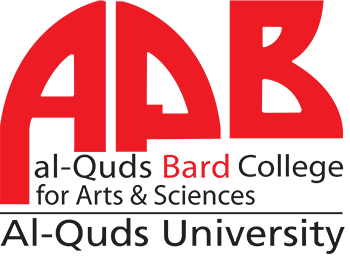Digital Communication
برنامج الاتصال الرقمي في كلية القدس بارد
برنامج يحاكي احتياجات العصر
برنامج الاتصال الرقمي في كلية القدس بارد هو تخصص جديد تطرحه الكلية لأول مرّة تزامناً مع التطورات المستمرة في سوق العمل وعالم الإعلام الرقمي المعاصر، حيث يدمج البرنامج خواص الإعلام التقليدي بالثورة المعلوماتية وتأثير المحتوى متعدد الوسائط (multimedia) على الجمهور الدولي عامة والفلسطيني خاصة. يطرح برنامج الاتصال الرقمي مساقات خصيصاً لما يحتاجه الإعلامي المعاصر من خبرة واتقان في الصحافة والتحرير والإنتاج الإعلامي، ي إدارة منصات التواصل الاجتماعي وصناعة المحتوى. كما يضم البرنامج مساقات في الفنون تتوفر للطلبة الذين يسعون لتطوير مواهبهم الفنية في مجال Video
Art, Art installation, و التمثيل.
يهدف البرنامج إلى تقديم المعرفة في مجال الإعلام الرقمي وأساليب الاتصال المعاصرة والفنون البصرية بباقة فريدة من نوعها على مستوى الوطن، حيث تُدرّس مساقات البرنامج تحت مظلة الآداب الحرة التي تختص بها كلية القدس بارد، مما يعزز مهارات الكتابة الابداعية والتفكير الناقد والبحث العلمي لدى الطلبة، والتي تمثل عمود من أعمدة الصحافة والإنتاج، بالإضافة الى تمكين الطالب من خلال مناقشات غنية وغرف صفية صغيرة تركز على النوعية لا على الكم.
-
مزايا البرنامج
التدريس على نهج الآداب الحرة وباللغة الإنجليزية -
التدريب العملي في بناء المهارات
-
أعضاء هيئة تدريس محليون ودوليون
-
فرص التشبيك والدراسة في الخارج
-
الحصول على شهادة إضافية أمريكية من كلية بارد في نيويورك
مجالات العمل المستقبلية
-
مجالات الإعلام التقليدية والمعاصرة
-
العمل في المؤسسات الإعلامية الحكومية والدولية
-
صياغة محتوى وإدارته على منصات التواصل ( سياسي، اجتماعي، ثقافي، مالي …)
متطلبات القبول
-
معدل 80% فما فوق في الثانوية العامة
-
التقدم لامتحان ITP (اختبار تحديد مستوى اللغة الإنجليزية لتحديد برنامج الطالب عند القبول)
-
تقديم الوثائق المطلوبة للقبول في كلية القدس بارد
كيفية التقديم
-
شراء بطاقة التطبيق من أحد نقاط البيع أو من خلال الرابط.
-
تعبئة طلب الالتحاق عن طريق اختيار "حرم جامعة القدس الرئيس" ثم "كلية القدس بارد" متبوعة ب"الاتصال الرقمي".
معلومات الاتصال
بريد القبول:
الهاتف: 4950-279-02
DIGITAL COMMUNICATION
The world is changing fast, and through a mixture of theory and hands-on apprenticeship students of media prepare for jobs that often do not yet exist. In fostering an environment of engaging, thinking and doing, the Digital Communications Program sets out to promote innovation and creativity in the area of socially "meaningful" digital media. Students will be expected to think critically about the profound impact media has on the world around us. This is especially needed in a place in which the production of public opinion is inextricably tied to political conflict. Just as importantly, students will become producers of cutting-edge content from podcasting and documentary to screenplay writing and blogging. We believe interactive media is an especially powerful instrument to put people, long the passive consumers of media, back into the roles as active creators.
Regardless of a student's choice of specialization, the program's interdisciplinary and hands-on approach to teaching and learning engages students in the entire creative process. A documentarian might take courses in history and literature - before she then writes an original script, shoots it, and then edits the film into its final form. Palestine has long been a center of attention for traditional forms of media, be it journalism, scholarship, documentary film making, or works of fiction and non-fiction.
People throughout the world follow local events often with the passion they would a local sporting team. This attention has turned media into a growth area in the Palestinian labor market. But to land a job after they graduate, students will need to be able to write proposals, create a budget, organize their time, and work in a team - and these are skills not typically products of the classroom but of real work experience. An important aspect to our program is the opportunity for students to meet local and international media and policy makers. Our weekly media lab gives students the thrill of production, while various internships offer them apprenticing with news organizations, documentary and feature film teams, Al-Quds University's own IMM, NGOs, and other private and public institutions working with media.

Mailing Address
Main Campus, Box 51000
Beit Hanina, Jerusalem, Palestine

